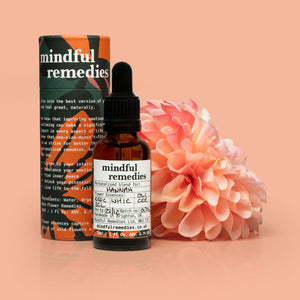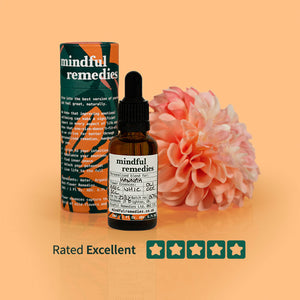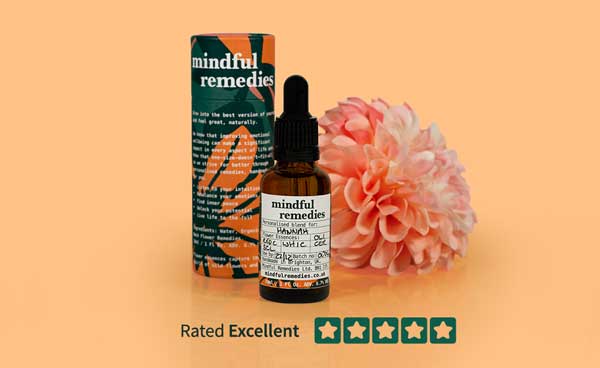your basket
- choosing a selection results in a full page refresh

Intuition can be defined as a deep and instinctive understanding or insight that arises without conscious reasoning. It is an innate ability to perceive or sense information beyond what is immediately apparent, often referred to as a "gut feeling" or "inner knowing." Intuition operates outside the realm of logical thinking and taps into our subconscious wisdom.
Intuition plays a vital role in decision-making. While logical reasoning and analysis have their place, intuition brings a unique dimension to the process. It allows us to access deeper levels of understanding, consider subtle cues, and make choices aligned with our authentic selves. Intuition can provide valuable insights that logic alone may overlook, leading to more holistic and satisfying decisions.
The purpose of this blog post is to explore the fascinating world of intuition, uncover the scientific foundations behind it, and provide practical guidance for developing and trusting our intuitive abilities. By understanding the science behind intuition and learning how to harness its power, we can enhance our decision-making, navigate life's challenges more effectively, and live more authentically.
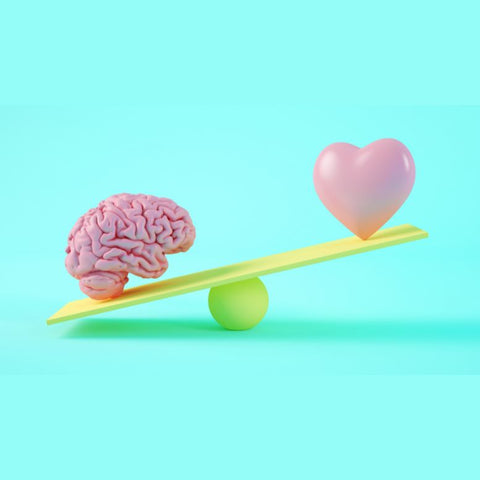
Our brain plays a significant role in the intuitive process. While logical thinking primarily involves the neocortex, intuition draws upon various regions, including the limbic system and the intuitive centres of the brain. These intuitive centres process information rapidly and holistically, allowing us to tap into intuitive insights that transcend conscious reasoning. Understanding the neural mechanisms involved can shed light on the workings of intuition.
Intuition is closely intertwined with subconscious processing. Our subconscious mind, which operates below the level of conscious awareness, continuously gathers and processes vast amounts of information. It filters through sensory data, past experiences, emotions, and patterns to generate intuitive impressions. These impressions rise to our conscious awareness as intuitive feelings, hunches, or subtle cues. Exploring the connection between intuition and subconscious processing helps us appreciate the depth and breadth of intuitive insights.
By delving into the science behind intuition and understanding the brain's role in intuitive processing, we lay the foundation for embracing and honing our intuitive abilities. In the next sections, we will explore how to develop and strengthen intuition, examine its practical applications in everyday life, and provide exercises and strategies for enhancing our intuitive decision-making.
Intuition often speaks to us through subtle gut feelings or inner nudges. It's essential to pay attention to these intuitive signals and honour them. Practice tuning in to your body's sensations and noticing when something feels off or aligned. Trust your instincts and have faith in your ability to make intuitive judgments.
Our bodies and emotions serve as powerful sources of intuitive information. Notice how your body reacts in different situations. Does it feel relaxed and at ease, or does it tense up? Similarly, pay attention to your emotional responses. Do certain situations evoke positive or negative emotions? By becoming attuned to these bodily and emotional cues, you can tap into a wealth of intuitive wisdom.
Cultivating mindfulness and engaging in self-reflection practices can deepen your connection to intuition. Set aside time for quiet contemplation, meditation, or journaling. These practices help calm the mind, quiet the noise, and create space for intuitive insights to surface. By becoming more self-aware and attuned to your thoughts and feelings, you can enhance your intuition.
Engaging in creative activities, such as painting, writing, or playing an instrument, can unlock and amplify your intuitive abilities. Creativity allows you to access the subconscious mind, where intuition resides. Give yourself permission to explore new ideas, embrace curiosity, and step outside your comfort zone. Embracing your creative side can lead to intuitive breakthroughs and innovative thinking.
In the next sections, we will explore specific exercises and techniques to enhance and develop intuition, discuss how to overcome obstacles that hinder intuitive thinking, and explore the impact of the digital age on intuition.
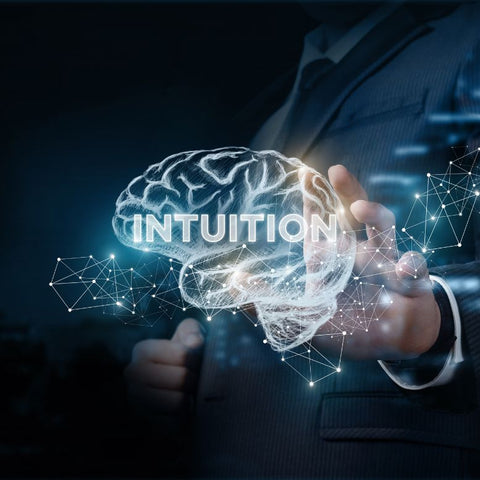
Meditation and visualisation are powerful practices for quieting the mind and tapping into intuitive wisdom. Set aside dedicated time for meditation, focusing on deep breathing and cultivating inner stillness. Visualisation exercises involve creating vivid mental images of desired outcomes or seeking guidance from your intuition. These techniques help sharpen your intuitive senses and deepen your connection to inner wisdom.
Writing can be a powerful tool for accessing and exploring your intuition. Set aside time for intuitive writing or journaling sessions. Start with a prompt or question, and without overthinking, let your thoughts flow onto the paper. This stream-of-consciousness approach bypasses the critical mind, allowing intuitive insights and guidance to emerge.
If you’ve not heard of Bach flower remedies before, they’re a system of 38 natural remedies created in the 1930s by Dr Bach. Each remedy helps to rebalance specific emotions, for example anxiety, anger, confidence or low mood.
The Cerato Bach flower remedy is specifically formulated for individuals who struggle with self-doubt and have difficulty making decisions. People who may benefit from Cerato often seek validation and advice from others, constantly second-guessing their own judgment and intuition. They may lack confidence in their own abilities and rely heavily on external opinions, which can lead to confusion and indecisiveness.
By taking Cerato, individuals can tap into their inner wisdom and develop trust in their own judgment. This remedy helps to restore self-assurance and encourages individuals to rely on their own intuition when making choices. It promotes clarity of thought, enhances confidence, and empowers individuals to make decisions with conviction.
Cerato is made from the flowers of the Ceratostigma willmottiana plant and is prepared in liquid form. It is one of the 38 Bach flower remedies and can be used alone or in combination with other remedies, depending on the specific emotional needs of the individual. It is considered safe and non-toxic, without any known side effects.
It's important to note that Bach flower remedies, including Cerato, are not meant to replace medical or psychological treatment but rather to support emotional wellbeing. If you are experiencing severe emotional or psychological distress, it's always advisable to seek professional help from a qualified healthcare practitioner.

Engaging in role-playing exercises or scenario analysis can help you sharpen your intuitive decision-making skills. Imagine different scenarios or situations and step into the role of various characters involved. Pay attention to your gut reactions, feelings, and insights that arise. Role-playing can offer valuable perspectives and enhance your ability to make intuitive choices.
Routines can make us complacent and unaware of our surroundings. By breaking free from the familiar, you expose yourself to new experiences, people, and environments. This heightened awareness stimulates your senses and allows you to notice things you might have otherwise overlooked and can improve your intuition.
Routine often creates mental patterns and limits our thinking. When you step out of your regular routine, you expose yourself to different perspectives, ideas, and ways of doing things. This exposure helps break down mental barriers, encouraging creative thinking and providing fresh insights. It allows your intuition to tap into a broader range of possibilities.
Routine can sometimes create stagnation and emotional monotony. Stepping outside of your comfort zone can invigorate your emotions, revitalising your spirit and opening you up to new feelings and sensations. This emotional reset can heighten your intuition by allowing you to tap into your emotions more deeply, enabling you to make decisions and judgments based on your gut feelings.
Our senses play a crucial role in intuition. Engaging in sensory experiences can heighten your intuitive abilities. Take time to immerse yourself in nature, noticing the sights, sounds, and sensations around you. Explore different textures, tastes, and aromas mindfully. By being fully present in the sensory experience, you can tap into your intuitive awareness and deepen your connection to the world.
Several barriers can impede our ability to access and trust our intuition. These include societal conditioning, fear of making mistakes, self-doubt, and over-reliance on external validation. Recognising these barriers is the first step in overcoming them and allowing your intuition to flourish.
Doubt and scepticism can cast shadows on our intuitive insights. Cultivate self-trust by reflecting on past instances where your intuition proved accurate. Practice suspending judgment and open yourself up to possibilities. Surround yourself with supportive individuals who acknowledge and value intuition, which can help reinforce your confidence in your intuitive abilities.
Intuition and logical reasoning are not mutually exclusive; they can complement each other. Strive to strike a balance between the two. Recognise that while intuition may not always provide logical explanations, it can offer valuable insights that logic alone may miss. Integrating intuitive insights with logical reasoning allows for more well-rounded decision-making.
In the digital age, technology has become ubiquitous, shaping our experiences and influencing our thinking. However, excessive reliance on technology and constant connectivity can disrupt our intuitive abilities. Acknowledge the impact of technology on your attention and awareness and be mindful of its potential to distract you from intuitive signals.
To maintain a strong connection to your intuition, establish healthy technology boundaries. Set aside designated periods of unplugged time each day, free from digital distractions. Engage in activities that foster presence and self-awareness, such as meditation, mindfulness, or engaging with nature. By creating space for introspection and disconnecting from constant stimulation, you can nurture and maintain your intuition.
In the digital era, information overload can overwhelm and cloud our intuitive insights. Learn to filter and manage the information you consume. Be selective about the sources you trust and practice discernment. Take breaks from news and social media to create mental space for creativity and escaping from your everyday routine.
Intuition is a powerful tool that can guide us in making better decisions and supporting us through life's challenges. By understanding the science behind intuition and developing and strengthening our intuitive abilities, we can tap into a deep well of wisdom within us. Recognising and trusting our gut feelings, paying attention to body signals and emotions, practicing mindfulness and self-reflection, and engaging in creative activities are all ways to enhance our intuition. Furthermore, by overcoming common obstacles, such as doubt and scepticism, and finding a balance between intuition and logical reasoning, we can fully harness the power of our intuitive insights.
If you're interested in exploring the Cerato Bach flower remedy to enhance your intuition, Mindful Remedies offers the option to create your own personalised remedy with up to 7 remedies in a bottle via the link below. Embrace the power of your intuition, and let it guide you on a path of self-discovery, clarity, and fulfilment.

Since 2021, Lucy Edwards, a qualified Bach Flower Practitioner and the driving force behind Mindful Remedies, has connected with clients across the world. Crafting thousands of personalised remedies, Lucy has supported individuals' emotional wellbeing, shipping remedies to far-flung places like the USA, Thailand, and Australia.
Lucy is readily available for conversations, offering personalised advice to guide you on the path to holistic wellness. It's important to note that she's not only qualified but also registered with the Bach Centre, ensuring that every consultation and remedy adheres to Dr Bach’s original guidelines for expert care and efficacy.
Exclusive pricing 20% off your first subscription order and 5% off all future orders
VIP treatment Receive personalised advice from Lucy, free gifts & 15% off gift vouchers
Easy to manage Edit remedy, change schedule, pause or cancel at any time
Exclusive online workshops Access to workshops focusing on emotional wellbeing, guided by Lucy
Early access to new products Be the first to try out new remedies or wellness products, before anyone else
